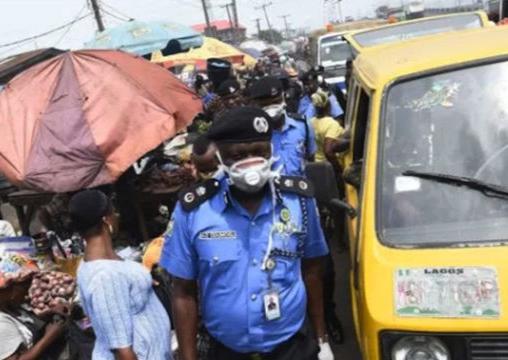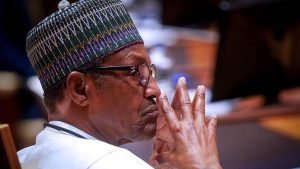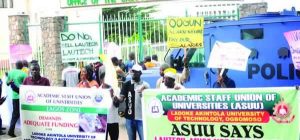
On February 27, 2020, Nigeria confirmed its first incident of the coronavirus, following the diagnosis of an Italian who had made an entry through the country’s airport. While the country was yet to settle down to the reality of the novel case, a second incident was confirmed on March 9. By this time, the nation was beginning to awake to the emergency nature of the crisis at hand. Outside the country, debates, arguments and counter-arguments were already reaching higher heights vis-a-vis who must take the blame for the virulent outbreak: China or the US, or countries deemed ‘careless’ enough to have allowed their citizens make International air travels to other places, thus spreading the virus to climes that had not been earlier affected. The WHO indeed had its share of the blame for not being adequately proactive in its initial response to the public health emergency. There have also a number of pharmaceutical sprints, by different countries and charitable foundations, towards the development of clinically approved antiviral drugs or vaccines that are effective in fighting the coronavirus. This is how fatal the coronavirus as come across.
According to one media source, a complete critical assessment of police response across many affected countries indicates that policing the pandemic is an arduous task which is not unique to Nigeria. From an utter misreading and misunderstanding of COVID-19 lockdown rules to having to handle citizens who simply want to put the laws to test by breaking the new rules, to the high desire for the use of force by the police on any occasion, including in negligible offences, it was clear that many police establishments got into their new functions only in the spur-of-the-moment.
In Nigeria, and among other institutions, agencies and parastatals working out short- and medium-term measures by which to navigate the difficult terrains of the novel coronavirus outbreak, the Nigeria Police had released a well outlined thirteen-point document to help its men handle the COVID-19 scourge. These guidelines were clear and included sections that required police officers to be vigilant, take protective measures; maintaining social distancing while working in police stations and offices; considering suspending the enforcement of minor offenses, and traffic violations, to minimise unnecessary public contact; considering measures in strict compliance with existing national legislation to prevent overcrowding in specific locations, such as clubs or sports stadiums, where the transmission of the COVID-19 virus might be facilitated. Other components of the guideline also included considering providing a police escort for shipments of emergency supplies to healthcare centers, such as medical equipment, personal protective equipment, etc., to ensure it is delivered safely and without interference; limiting, as far as possible the number of individuals held in confinement, where they might be especially vulnerable to infection, among other things.
These regulations and guidelines had become significant particularly in the light of many government directives, which included shutting the borders between states of the federation. It was also important because the numbers emerging from the Nigeria Centre for Disease Control were significantly on the rise, and the numbers of reported new cases, deaths, and discharges were headlining certainly on a 24-hour basis, thus necessitating the announcement of the initial lockdown and border closure. The numbers that were headlining soon revealed one important thing: the Nigerian public must now begin to take cautious steps towards self-preservation and appreciate the rationale for the prescribed application of the non-pharmaceutical interventions such as social distancing and the use of face masks. The Nigeria Police, as the frontline civil enforcement agency had the immediate task of enforcing these directives, while keeping strictly to the working guidelines earlier provided by the Force hierarchy.
In no long time, and in an antithetical twist, men of the police force had, by contingencies or by design, compromised many of these standard and statutory guidelines. First were the restrictions of human and vehicular movements, with exceptions being the movement of essential goods and services and essential workers. Soon after these announcements, it seemed, to the contrary, that a window had just been flung open, offering men of the police at the inter-state border posts the ‘remote privilege’ to extort legitimate commuters such as essential-goods transporters and leg-walkers, away from the watching eyes of the government’s and the Nigerian public.
Once successful at perfecting this money-making endeavour in clear and daring violation of the law, directives and guidelines of government, the police had graduated from roadblock extortions towards a more organised modus operandi in breach of the COVID-19 guidelines. In this new phase, Very Important Personalities (VIP), and indeed any person, who could pay the ‘escort fee’, could ride shotgun with the police from one state to another and regardless of travel distance across the country. The lack of a shamefacedness on the part of the police at this stage paved the way for more Nigerians, including persons who were asymptomatic carriers of the coronavirus, to move in higher numbers from one part of the country to another, in the process spreading the virus from an epicentre like Lagos to other places where coronavirus cases had yet to be confirmed. In many instances, such other places had no prior cases of Covid-19.
In May 2020, less than two months after the first lockdown was announced by the Nigerian federal government, the Inspector General of the Nigeria Police had occasion to withdraw the police escort of the popular business man, Emeka Okonkwo, also popularly known as ‘E-Money’, for ‘abusing’ officers of the police force whom he reportedly had engaged in domestic and menial tasks, amongst other tasks that were sharply against the ethics of the Police force.
Similarly, there had also been reports of human rights abuses by the police who violated a number of citizens in different states of the country during the lockdown. These were a sharp diversion from an earlier directive from the Inspector General of Police, who had warned his officers against making unnecessary arrests during the lockdown. The IGP had directed that only legitimate arrests must be made in order to curtail the spread of the virus. Ironically, in the saga that saw the court appearance of the popular actor and movie producer, Funke Akindele-Bello, the police had been seen to have completely let down its guard by paving the way for men and women of the press to jostle and mingle in the course of ensuring coverage of the court pronouncement that sent the actor into community service for an earlier violation of the social distancing rule during a birthday party that reportedly held at her Lagos home.
On other occasions, when the coronavirus had been confirmed to have spread to some states in Northern Nigeria, vehicles especially trucks loaded up with cattle from these areas had been intercepted in several states in the southern part of the country, when inter-state border closures were supposed to still be in effect. Governments of Delta State and Bayelsa State, for instance, had intercepted livestock cargos in similar circumstances that pointed at the comprise, complicity and failure of the police in the course of enforcing law and order, which is its primary duty.
The police had also been found to have dented its public image for deliberately violating the curfew during the first phase of the ease of lockdown. Many journalists and commuters had, on one occasion, passed the night in Lagos traffic, while the police was supposed to have been doing its job of enforcing the curfew. Persons suspected to have fallen foul of the rules of the curfew were arrested in groups and hurled on to police pickup vans in manners that also made social distancing impossible as arrested persons were held tightly together on the deck of the police vehicle.
Having highlighted these critical instances of, mostly, deliberate subversion of state laws and public health emerging regulations by the Nigeria Police, the fate of Nigerian public, and by implication the government, remains highly uncertain in the face of a ravaging pandemic owing to the (feigned or real) ineptitude of the police or a premeditated violation of executive orders made in public interest.
More critically, inflation in food prices and other consumable goods have recently risen but economic analysts tend to miss the point that prices rise during the Covid-19 experience in Nigeria because ‘police duties’ as against ‘customs duties’ were paid on consumer goods transported across state borders and, if the rules of economics are anything to go by, such ‘duties’ paid could only reflect on prices so that traders make up for the margins of costs rather than go at losses due to the police’s interruption of economic value chains.
At the moment, the latest COVID-19 statistics for Nigeria show that, as of August 28, 2020, the country has confirmed 53,477 cases of the virus, while having recorded 1011 death and 41,017 discharges. Perhaps these numbers could have been much lower if the Police had lived up to its duties and responsibilities to state. As the principal law enforcement agency, charged with the primary duty of upholding civil order and societal decorum, the Nigeria Police has the responsibility, both the government and the citizenry, to live up to this expectation. In times of a global pandemic such as the deadly coronavirus outbreak, much continue to be expected of the police as far the safety and protection of the civil populace are concerned. Across the world, police Institutions are facing some of the challenging times with respect to their capacity and capabilities to meet up with the demands of the pandemic as well as, in the insurance of the US, the ability to live up to the demands of sociocultural and racial equity.
Police forces around the globe have the eye of their respective publics on their moral, ethical and professional actions, more than at other times. In Nigeria, with an already long history of disappointment with the Nigerian public, the police Institution must effectively utilise the sobering moments which a global public health crisis offers as a good opportunity to redeem itself from a badly damaged public relations image. As the statistics continue to climb in some parts of Nigeria, many do hope that the police would fully appreciate the extent of its direct and indirect contribution to the spread of the Covid-19 scourge. Often, as history has shown, there are rarely second chances for ever making a good impression. While the police must come to terms with the fact of its moral and ethical compromises and unprofessional behaviour during the lockdown, the citizens have the opportunity to act within their civil rights and obligation to hold government to account and demand the very kind of police force that befits a new Nigeria that is genuinely transformed according to the vision of ‘change’ that it once campaigned and now processes.
Abiodun Bello

